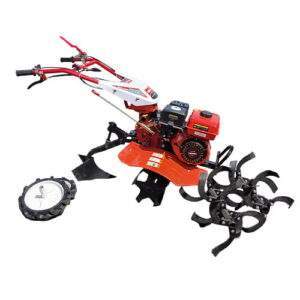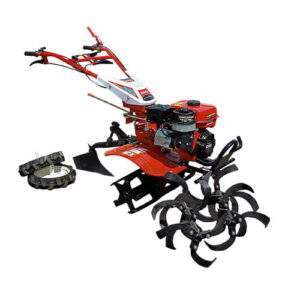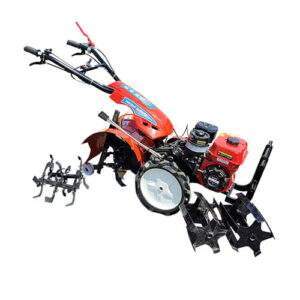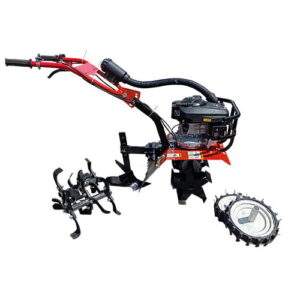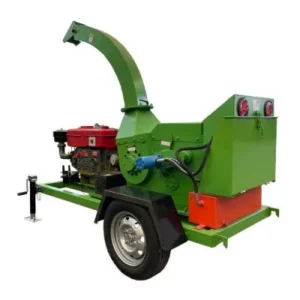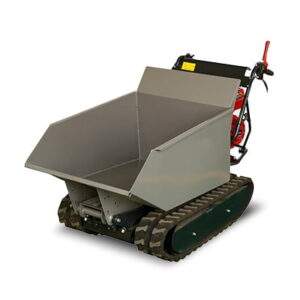Benefits of Investing in a Small Walking Tractor for Your Farm
Introduction
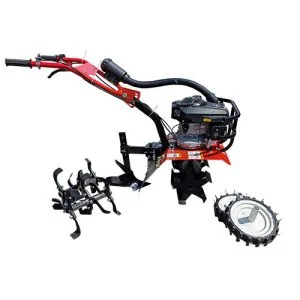
Mini walking tractors have become indispensable tools for modern farming, offering versatility, efficiency, and cost-effectiveness. This blog explores the numerous benefits of investing in a small walking tractor, covering their features, applications, and advantages for farm operations.
What is a Small Walking Tractor?
A mini walking tractor, also known as a two-wheel tractor or hand tractor, is a compact agricultural machine designed for various farm tasks. It typically includes a single axle with two wheels, powered by a diesel or gasoline engine, and supports a range of attachments for plowing, planting, and other field activities.
Advantages of Small Walking Tractors
Versatility in Farm Tasks
Mini walking tractors are adaptable for multiple agricultural operations, including plowing, harrowing, seeding, and transportation, making them suitable for diverse farming needs.
Maneuverability in Compact Spaces
Their compact size and maneuverability allow mini walking tractors to navigate efficiently in tight spaces and uneven terrain, enhancing accessibility and operational flexibility on farms.
Cost-Effectiveness
Compared to larger agricultural machinery, small walking tractors are more affordable to purchase, operate, and maintain, offering significant cost savings for small-scale and subsistence farmers.
Fuel Efficiency
With efficient engine designs and lightweight construction, small walking tractors consume less fuel per acre compared to larger tractors, contributing to reduced operating costs and environmental impact.
Ease of Use and Maintenance
These tractors are designed with user-friendly controls and simple maintenance requirements, enabling farmers with varying skill levels to operate and upkeep them effectively.
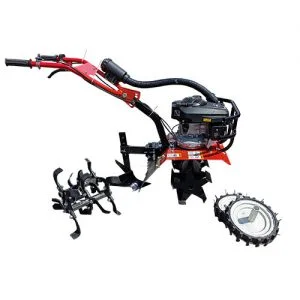
Characteristics of Small Walking Tractors: A Comparative Overview
The table below summarizes the key characteristics and features of mini walking tractors commonly available in the market:
| Characteristic | Description |
|---|---|
| Engine Type | Options include diesel or gasoline engines, varying in horsepower and fuel efficiency. |
| Attachments Compatibility | Supports a wide range of implements such as plows, cultivators, seeders, and trailers. |
| Transmission Options | Typically manual or with simple gear systems, facilitating ease of operation and maintenance. |
| Traction and Stability | Features robust wheels and axles for stable performance on different types of terrain. |
| Safety and Ergonomics | Includes safety features and ergonomic designs for operator comfort and operational safety. |
Conclusion
Investing in a mini walking tractor can significantly enhance productivity, efficiency, and profitability on your farm. By understanding their versatile capabilities, cost-effectiveness, and ease of operation, farmers can make informed decisions to optimize their agricultural operations and achieve sustainable growth.
Certainly! Here are three additional FAQ (Frequently Asked Questions) that could complement the blog post on the benefits of investing in a mini walking tractor for your farm:
FAQ
1. What types of attachments can be used with a small walking tractor?
Small walking tractors support various attachments depending on farm needs, including plows, cultivators, seeders, mowers, and trailers. These attachments enhance their versatility for different agricultural tasks.
2. How do small walking tractors compare to larger tractors in terms of performance?
While small walking tractors excel in maneuverability and cost-effectiveness for small-scale farming, larger tractors offer higher horsepower and capacity for larger fields and heavy-duty tasks. Choosing between them depends on the scale and specific needs of your farm operations.
3. What are the maintenance requirements for a small walking tractor?
Maintenance for small walking tractors typically includes regular checks on engine oil, filters, belts, and tire pressure. It’s essential to follow manufacturer recommendations for servicing intervals and ensure proper storage and upkeep to prolong the tractor’s lifespan and performance.
4. Can small walking tractors be used for both agricultural and non-agricultural purposes?
Yes, small walking tractors are versatile machines that can be adapted for a variety of tasks beyond traditional farming. They are often used for landscaping, gardening, snow removal, and transportation of goods on small farms and rural properties.
5. What factors should I consider when choosing a small walking tractor for my farm?
When selecting a small walking tractor, consider factors such as the size of your farm, terrain conditions, desired attachments, horsepower requirements, fuel efficiency, and budget. Assessing these factors will help ensure you choose a tractor that meets your specific farming needs effectively.

